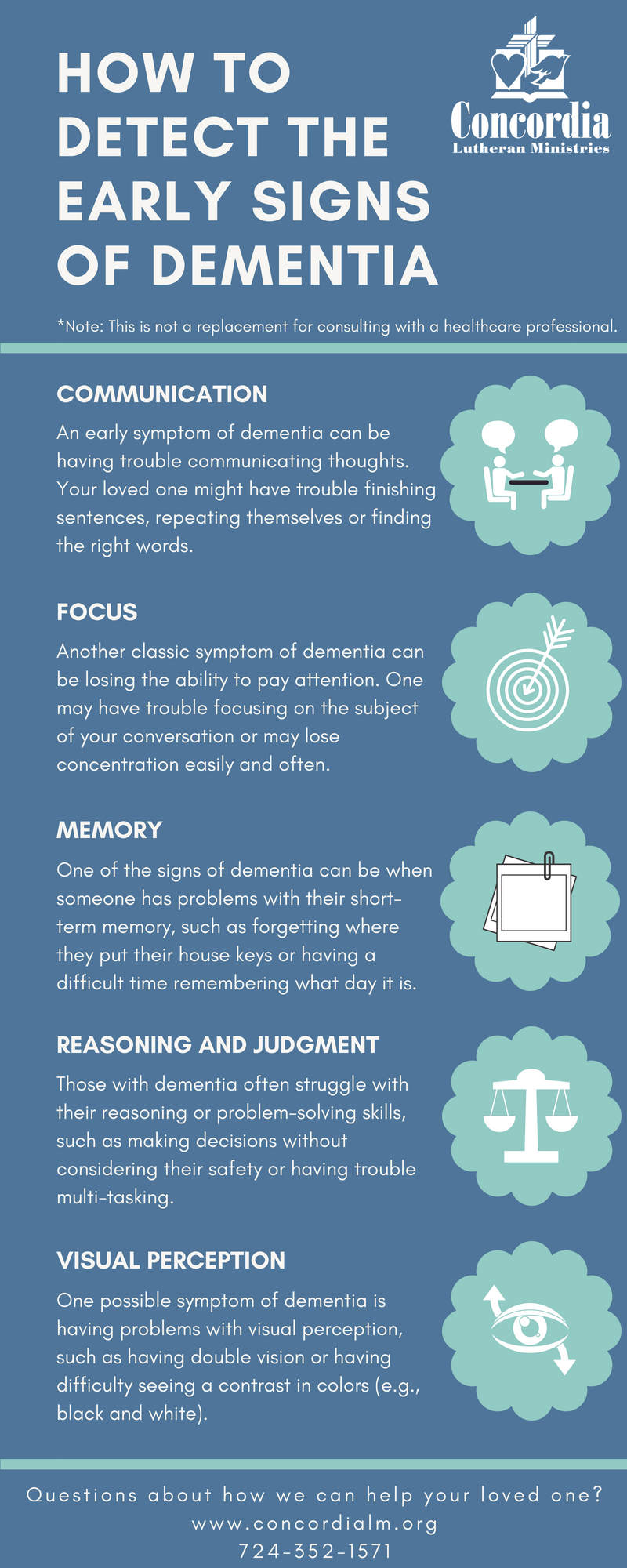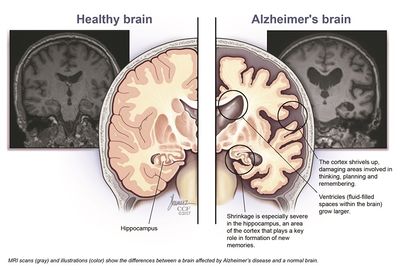Understanding Stroke-Related Vascular Dementia Symptoms
Understanding Stroke-Related Vascular Dementia Symptoms
Blog Article
Comprehending the Effect of Mental Deterioration on Daily Life and Caregiving
Dementia influences everyday life in extensive ways, impacting not just those detected but likewise their caretakers. As cognitive decrease progresses, you might observe changes in communication and regular that obstacle both parties.
The Stages of Mental Deterioration and Their Impacts on Day-to-day Live
As you navigate the journey of mental deterioration, understanding its stages can substantially affect just how you manage life. Mental deterioration typically progresses with 3 main stages: early, middle, and late. In the very early phase, you could notice occasional memory lapses or trouble locating the right words. This can result in stress, yet recognizing these signs early aids you adapt your regular and seek assistance.
During the center phase, you'll experience more visible cognitive decline. Daily tasks might end up being difficult, and maintaining your independence may call for changes. Making use of tips and streamlining your atmosphere can assist.
In the late stage, individuals frequently need substantial help with everyday activities. Preparation for treatment ends up being vital, focusing on comfort and high quality of life. By recognizing these stages, you're better equipped to react proactively, ensuring you or your enjoyed one can browse the difficulties with dignity and poise.

Changes in Communication and Social Interaction
Exactly how do modifications in interaction impact your everyday communications as dementia advances? As dementia breakthroughs, you could see that simple conversations become difficult. Words may escape you, or you may struggle to find the best phrases. This can lead to aggravation for both you and your enjoyed ones. Nonverbal hints, like motions or facial expressions, become progressively essential.
You might find it much easier to connect through these methods rather than depending entirely on spoken language. Paying attention skills can also transform; you may find it harder to bear in mind or comply with conversations what was just said (Frontotemporal Dementia). This can lead to misconceptions or feelings of seclusion
Encouraging perseverance and creating a helpful setting can assist. Involving in activities that foster link, like music or art, can improve social interactions. Keep in mind, keeping relationships is still possible; it's practically adjusting to brand-new ways of connecting.
Impact on Daily Routines and Activities
While navigating day-to-day routines, you'll likely observe that tasks you when finished easily become much more tough as mental deterioration advances. Simple activities like cooking, clothing, or also showering may need even more time and initiative. You could find on your own forgetting action in familiar routines or having a hard time to recall where you put items. This can bring about stress not simply for you, but also for those around you.
Adapting your environment can aid; for circumstances, labeling things or making use of checklists can streamline jobs. Involving in repetitive, organized activities can also give convenience and a sense of success. Keep in mind, it's okay to ask for assistance.
Behavioral and psychological Obstacles
Guiding with daily regimens can cause not simply useful obstacles, however additionally psychological and behavioral ones. You might see changes in state of mind, such as increased anxiety or aggravation, which can originate from confusion or problem in finishing tasks. As you browse these minutes, it is essential to acknowledge that your loved one may share their feelings with actions like agitation or withdrawal.
These psychological actions can be uncertain and may emerge without warning, leaving you both feeling bewildered. You could find that acquainted environments or routines can assist decrease anxiety, however keeping patience becomes substantial. It is very important to validate their feelings, also if you do not totally understand them.
The Role of Caregivers in Supporting Individuals With Mental Deterioration
As a caregiver, you play a vital function in giving psychological support for people with mental deterioration. Developing day-to-day care routines can create a sense of stability and convenience, aiding to ease their anxiety. By understanding their needs and using effective techniques, you can considerably boost their high quality of life.
Psychological Assistance Approaches
When caring for someone with mental deterioration, understanding the emotional landscape is vital for supplying efficient support. You'll frequently find that patience and compassion go a long method. Validate their feelings; if they express complication or aggravation, acknowledge it without disregarding their emotions. Straightforward motions, like holding their hand or keeping eye get in touch with, can produce a complacency. Try to take part in activities that they enjoy, as this can trigger pleasure and link. Keep in mind to communicate plainly and gradually, utilizing a calm tone. Encourage expression via music or art, which can serve as an effective outlet. Ultimately, don't neglect to care for your own emotional demands; seeking support for on your own can improve your ability to take care of them.
Daily Care Routines
Developing everyday care regimens is necessary for offering stability and comfort to people with dementia, as these regimens can help in reducing confusion and stress and anxiety. You can begin by laying out a constant timetable for meals, tasks, and remainder. This predictability helps your liked one really feel extra safe and secure and engaged.
Incorporate acquainted jobs, like folding washing or watering plants, which can evoke positive memories and cultivate a feeling of success. Use visual hints, such as schedules or lists, to assist them via the day.
Be flexible, though; adapt regimens as required based upon their state of mind or power levels. Early Onset Dementia. Remember, your persistence and understanding are crucial in steering their changing needs, ensuring they feel supported and valued throughout their every day life
Developing a Safe and Comfy Living Setting
Producing a comfortable and safe living environment is necessary for people with mental deterioration. You'll want to make home security adjustments that minimize dangers and ensure experience to supply a feeling of convenience. By concentrating on these aspects, you can aid develop a room that sustains both safety and security and health.
Home Safety And Security Modifications
As you browse the challenges of mental deterioration, making home safety and security alterations can substantially improve convenience and safety and security. Start by getting rid of tripping threats like rugs and mess, have a peek at these guys ensuring pathways are clear. Set up grab bars in shower rooms and non-slip floor coverings in the shower to stop falls. Consider using brighter lights and evening lights to enhance visibility, particularly during nighttime. Label important locations, such as the shower room and kitchen area, with clear signs to assist with alignment. Secure any sharp things or hazardous substances unreachable. In addition, evaluate your home's locks and alarms to validate they're straightforward and offer assurance. These alterations not only promote safety and security however also motivate independence, permitting your liked one to feel even more comfortable in their environment.
Convenience and Knowledge
After making sure a safe environment with necessary alterations, cultivating convenience and knowledge is essential for people with mental deterioration. Preserve a constant routine to assist them feel based and decrease anxiousness. Involving in familiar activities, such as listening to songs or gardening, can improve their sense of belonging, making their living setting a real sanctuary.
Methods for Efficient Caregiving and Assistance
While steering the difficulties of mental deterioration care can feel frustrating, carrying out effective techniques can considerably boost both the caretaker's and the person's daily experience. Begin by establishing a routine; predictability aids minimize anxiety for both you and your loved one. Usage clear, basic communication-- straight inquiries and brief sentences can avoid confusion.

Don't neglect to care for on your own; timetable breaks and get in touch with support system. Sharing experiences with others in similar scenarios can supply useful understandings and psychological relief.
Lastly, stay person and adaptable. Mental deterioration can bring uncertain changes, so adjusting your strategy is important. By employing these approaches, you can foster an extra positive setting that benefits both you and your enjoyed one.
Regularly Asked Concerns

What Are the Various Sorts Of Mental Deterioration?
You'll find several kinds of dementia, including Alzheimer's, vascular dementia, Lewy body dementia, and frontotemporal mental deterioration. Each type impacts memory and cognitive function in a different way, so recognizing the distinctions is important for correct medical diagnosis and treatment.
Just How Can I Aid Someone With Early-Stage Dementia?
You can aid someone with early-stage mental deterioration by being patient, offering support, and encouraging them to involve in activities they appreciate. Maintaining regimens regular and preserving open communication can also make a substantial distinction in their life.
Exist Financial Resources Available for Mental Deterioration Treatment?
Yes, there are financial resources readily available for dementia care. You can check out entitlement program programs, not-for-profit organizations, and insurance coverage choices. It's additionally smart to speak with regional companies for particular sources customized to your situation.
What Lawful Factors To Consider Should Caregivers Understand?
As a caretaker, you ought to take into consideration power of attorney, health care proxies, and guardianship regulations. It's necessary to comprehend the legal civil liberties and duties you hold, ensuring your enjoyed one receives proper treatment and defense.
How Can I Deal With Caretaker Stress And Anxiety?
You can handle caretaker stress by prioritizing self-care, seeking support from groups or pals, setting reasonable expectations, taking breaks, and practicing relaxation strategies. Keep in mind, your well-being matters simply as much as the person you're looking after.
Recognizing the Influence of Mental Deterioration on Daily Life and Caregiving.
As you browse the journey of dementia, comprehending its phases can substantially affect how you handle day-to-day life.While navigating day-to-day regimens, you'll likely observe that jobs you as soon as completed easily come to be a lot more challenging as dementia proceeds.Developing daily treatment routines is important for offering stability and convenience to people with mental deterioration, as these routines can help decrease confusion and anxiousness.While maneuvering the difficulties of you can try here mental deterioration treatment can really feel frustrating, carrying find more information out effective methods can considerably enhance both the caregiver's and the patient's day-to-day experience.
Report this page